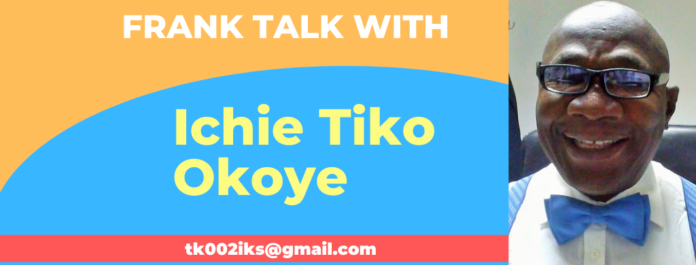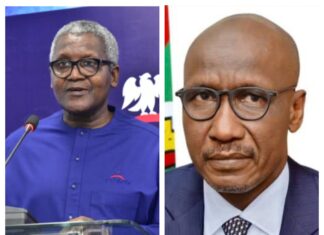Very few people would fault the postulation that today’s South-East is very representative of the turmoil and frightening beastly spectacles that pockmarked Dante’s Inferno. What with the mindless, rampant destruction of hard-to-replace infrastructures, internecine violence, incessant lock-down of schools, markets and business entities, coupled with massive blood-letting and killings within the zone!
By Tiko Okoye
Before misconceptions materialise and speculations run riot, let me hasten to confess right from the onset of this piece that I never studied literature in a formal setting beyond Secondary School Class Four. But in an era when novels like Cyprian Ekwensi’s Jagua Nana and People of the City were contraband goods in schools and susceptible to being confiscated by senior students, I became enamoured with reading, particularly voluminous masterpieces written by Harold Robbins.
The likes of Jagua Nana didn’t even come a close second to the novels penned by Robbins in terms of free and easy narratives of raw sex, drug-use and binge drinking. So, I knew that the punishment would be much harsher if I was caught with any of his novels. And because I could only secretly read them within a very limited time period, if I’m not to be caught, I developed the habit of fast-reading, with the gift of retaining much of whatever I read.
One other novel that held my attention completely in those early years – and the anchor for today’s piece – is Dante’s Inferno. What I found very amusing and ironical was that while senior students who were reading it as part of the recommended textbooks for their literature course complained about its being “too difficult to synchronise,” I was having the time of my life reading it for leisure!
Dante’s Inferno, an Italian narrative poem by Dante Alighieri, begun around 1308, completed in 1320 and originally published in 1472. It is widely considered an epic masterpiece and one of the greatest works of world literature. The epic poem represents both a massive allegory and a grand metaphor. Dante’s personal crisis and descent through the Nine Circles of Hell and ultimate arrival at the centre where Satan himself resides as well as frightening encounters with strange animals are more than just escapist fantasies, as the poet seeks to use them to explore the nature of the world and human life.
After escaping hell, Dante and his imagined guide – iconic Roman poet Virgil (70 – 19 BCE) – leave Lucifer imprisoned in ice at the bottom of Hell and climb down his legs to come out the other side of Hell, on the opposite side of the world. It is night-time, so both men are able to “see, once more, the stars.” Inferno thus concludes on a note of hope. The poem is ultimately a story of a miraculous redemption.
READ ALSO: Kukah knocks Buhari again, says he’s done a very bad job as Nigeria’s president
Each literal plot, character, imagery or event in the Inferno is a symbol representing an idea or quality as well as being expressed in a way that’s different from its normal use. The net effect is to imbue the story with a second level of meaning implied by, but broader than, the events of the narrative, making it more compelling and powerful in the process. On a literal level, it portrays Dante’s adventures in the fantastical realms of Hell, Purgatory and Heaven, but these adventures actually represent a broader subject: an allegory and metaphor for the competitive struggle of life to find inner peace.
So, what’s the nexus between Dante’s Inferno – allegories and metaphors inclusive – and the South-East? Let me first attempt to proffer an answer by saying that the poem’s bold admixture of realities, from the sublime to the vile, is part of what makes it so vital to addressing contemporary politics, philosophy and society, among others. Like Dante, my principal goal goes beyond simply rehashing a story, but rather to urge Ndigbo to undertake their own validation of their heritage, antecedents and character. It’s a compelling narrative worth retelling in a very lucid manner.
Very few people would fault the postulation that today’s South-East is very representative of the turmoil and frightening beastly spectacles that pockmarked Dante’s Inferno. What with the mindless, rampant destruction of hard-to-replace infrastructures, internecine violence, incessant lock-down of schools, markets and business entities, coupled with massive blood-letting and killings within the zone!
Dante had the highly-trusted and untainted Virgil to guide him through the traumatic journey of self-discovery and redemption. But when the time came for South-East elders and the political elite to provide necessary guidance to our exuberant young men, they went on AWOL! There’s a saying that the mother-goat giving birth is never allowed to die from the effects of stillbirth when elders are in the house, but the opposite became the case in Igboland. Perhaps, their hands and consciences weren’t too clean or maybe they became mortified by concerns for their safety.
It’s election campaign season again, and our political elite – with the mute button suddenly turned off – are attempting to outdo each other in winning the support of droves of vociferous youthful members and supporters of secessionist groups. But it’ll only amount to a futile exercise of putting the cart before the horse if the South-East environment isn’t made more conducive before anything else.
Any discerning observer would concede that not only has IPOB disintegrated into multiple factions, the influence of the original group has increasingly waned while that of the more virulent breakaway faction is on the ascendancy. Proof? Which of the faction maintaining that the lock-down order has been fully lifted and the one insisting that it’s still in place has the upper hand?
Perhaps, just like Dante, the South-East would experience a miraculous redemption at the end of it all – and I’m no way, shape or form talking about Biafra. Perhaps again, like Dante, we South-Easterners need to first pass through “the place of eternal punishment” (Hell) and then “a place of lesser punishment” (Purgatory), prior to reaching our metaphorical Utopia and “God’s city on the hill” (Heaven). But I seriously doubt it.
Just last Thursday, I received several chilling WhatsApp posts from a former bank colleague now occupying a very top post in the immigration and citizenship service of a foreign country. In one of the early posts, he had wondered if there were anybody still living in the South-East. Irritated by this ‘expensive joke,’ I wanted to hear the reason he asked the question. He responded that Western countries, particularly Germany with the most lax asylum laws in Europe – are being daily flooded by asylum seekers whose major supporting documents are photographs of buildings being burnt and people of all ages, class and gender most gruesomely murdered.
So, what’s happening in the South-east has burgeoned into a Mafioso-like multi-billion dollar international business, where asylum seekers procure the services of ‘professional facilitators,’ and it is not for nothing that huge numbers of undocumented Nigerians in the Diaspora – and other Africans, Arabs and East Europeans as well – desperately seeking to regularise their residency status in Europe and America have shifted their loyalty from the original faction to a dominant breakaway faction.
What this clearly implies for those who have eyes to perceive and ears to understand is that the orchestrated destruction of our infrastructures, increasing hardship and killings of our own kinsmen – ironically in the name of ‘liberation’ and ‘independence’ – would be on the rise and not on the wane, as they constitute the ‘evidence’ asylum-seekers need to justify their application – and the more gruesome and gory the imagery, the more believable a case is made that the South-East is more tormenting and tortuous than Dante’s Inferno as a place to live and raise a family.
The poem is heavily focused on the idea of free will – the choices humans make affect their future, so much so that the eponymous hero believes the sinners in Hell choose their fate. There’s a famous proverb in the South-East that posits that “Igbo enweghi eze,” meaning that Ndigbo have no king or not ready to stomach any form of authoritarianism. And one cannot but wonder how an ethnic nationality reputed for their republicanism have freely expressed a will to virtually transform into cowered zombies now willing to be led by the nose, as they idly watch their homeland become a vast wasteland.















